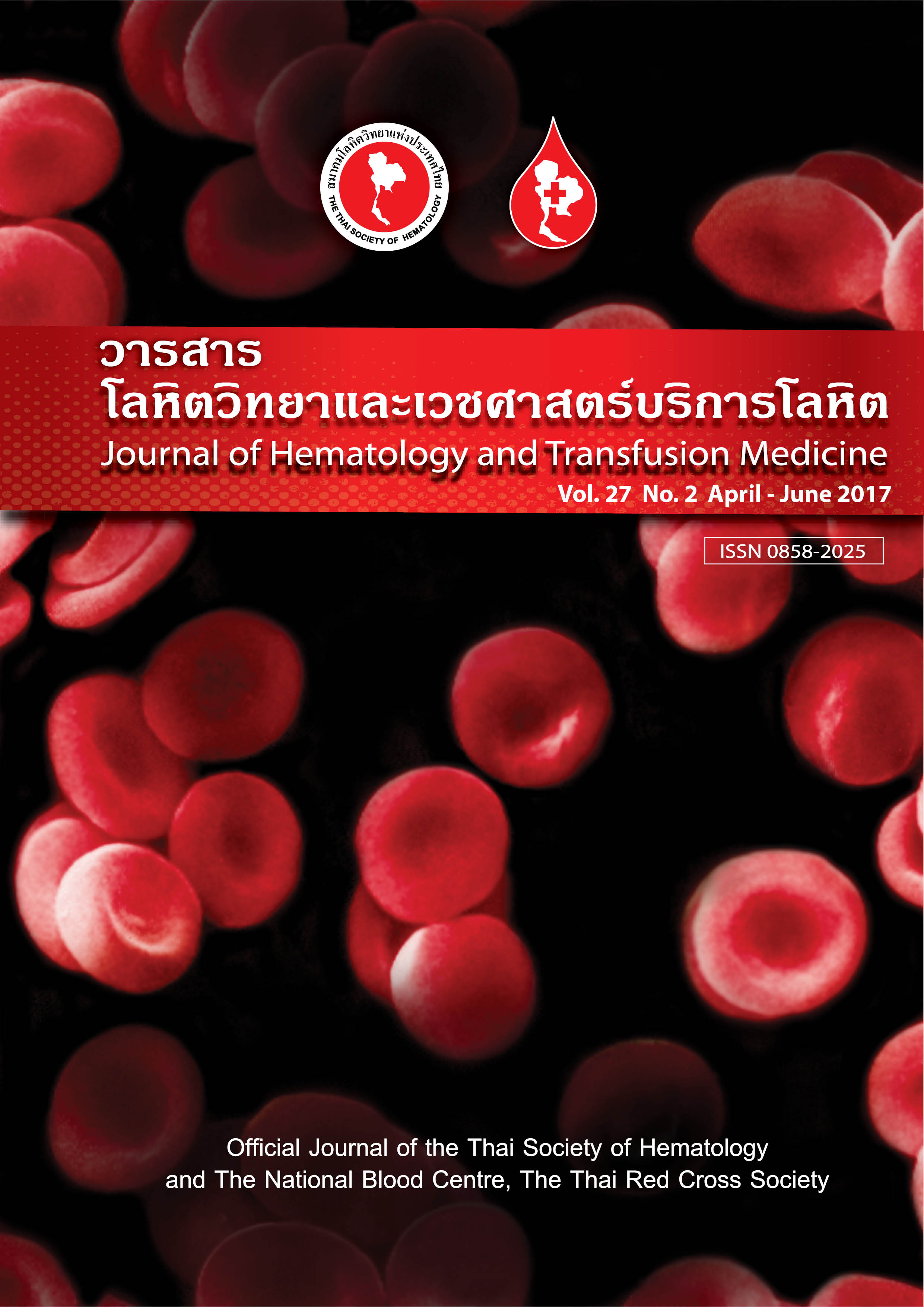HIV Infection Complicated by Autoimmune Hemolytic Anemia (AIHA): A Case Report
Keywords:
Autoimmune hemolytic anemia, HIV infectionAbstract
Anemia in HIV-positive patients is one very common problem. Among its various causes, autoimmune hemolytic anemia (AIHA) is unusual where the degree of anemia may be moderate, severe or even fatal. It is more frequently mentioned among blacks than Asians. Herein we report a case of a 39-year-old Thai man presenting fever and fatigue due to marked anemia for 3 days. Before admission, he received a diagnosis of HIV and was treated with Kaletra (Lopinavir + Ritonavir) and Zilavir (AZT + Lamivudine) for a few years. His blood tests indicated Hb 6.1 g/dL, WBC 7x109/L, corrected WBC 6.7x109/L, platelet count 314x109/L, MCV 116.5 fL, MCH 40.2 pg, NRBC 4/100 WBC, direct antiglobulin test 1+, indirect antiglobulin test 2+, reticulocyte 2.3%, CD4 12%, CD4 count 463/mm3, viral load 304 copies/mL and blood VDRL was negative but TPHA was reactive. He received a diagnosis of AIHA and late latent syphilis with underlying HIV during treatment and was treated with prednisolone 60 mg daily and benzathine penicillin, while zilavir was changed to lamivudine and tenofovir. Within 4 weeks, his Hb rose to 7.8 g/dL without blood transfusion, otherwise unremarkable, and then prednisolone was gradually tapered. In general, the lowered CD4 count in patients with HIV results in numerous autoantibody formations and rheumatologic syndrome, which may include AIHA. However, the CD4 count in our case is not low and the pathogenetic mechanism cannot be properly explained. Because relative reticulocytopenia is found in AIHA with HIV, AIHA may be simply overlooked, so the direct antiglobulin test should be performed in any case of anemia in patients with HIV.Downloads
Download data is not yet available.
Downloads
Published
2017-06-19
Issue
Section
รายงานผู้ป่วย (Case report)



